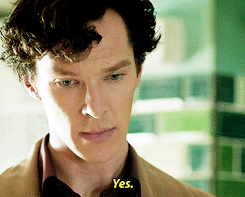1. Be creative
Ha! I bet you thought being creative was a prerequisite for all writerly types out there, am I right? Well, that may be true when you start off. You can't write without being creative (and I truly do believe this holds true even in academic writing...). So what's the problem with being creative, you ask me? Here it is: How is one supposed to get things done when you cannot turn around without stumbling over (or, oh horror of horrors, stepping on) super-cute, impossible to ignore plot bunnies? You thought dust bunnies were a problem? Not. Even. Close.
2. Be nice
I've never had a neighbour who asks for cups of sugar or flower or whether or not I have a spare cake tin, but there's always something one can do in order to play nice with people. Not that there's anything wrong with being nice - I mean, surely everyone can do with some karma or brownie points or however your good side keeps score. There's just one problem: it takes time. Sometimes I envy those crochety old authors you occasionally hear about, the ones who go vanish in a mountain cabin somewhere and come back only to hand their hand-written magnus opus to their long-suffering agent... ah well. I'll just be the nice one, instead.
3. Earn a living
That mountain cabin with the glorious views and the handy distraction-free location? Well, it won't pay for itself. I don't know about you, but I really, really don't earn my living writing things. Not the sort of things I WANT to write, that is. Most jobs these days involve a minimum of nine-to-five dedication. If you don't have a job, you're probably spending an inordinate amount of time either looking for one or worrying about it. And when you're done working and/or thinking about a job, what do you do with the rest of your time?
4. Be healthy
You spend time trying to be the best you possible! Good for you! It's what we should all do, isn't it? Sports and dieting (or healthy eating, however you want to call it), that's the way to go. Whether you do team sports or you're more the solitary warrior type (I, myself, am partial to running and yoga), it's all good for you. Sports can even help when you're stuck with your story. Even walking can help (as my bloggy friend Mia recently posted about). Of course, it's rather difficult to write whilst walking, running or playing tennis...
5. Have hobbies
Once you're done with all the healthy and the money and the nice, why not try your hand at, say, sketching your favourite characters? There's a worthy thing to be spending your time with, surely! We all have pictures of our characters in our heads, don't we? (please don't tell me that's just me...) A couple of pictures of him or her up on the storyboard is a great help, I'm sure. In fact, why don't we just draw ALL our characters? Once they're all suitably represented, we'll get back to writing about them. I swear.
6. Aquire more hobbies
It's winter right now, and your friends are cold. Go knit them a scarf, a hat, some gloves. A sweater, maybe...
7. Get a pet
I have two dachshunds to call my own (well, that's how I put it, anyway - they might explain it differently). They are wonderful, such characters, wriggly little things that make me smile just thinking about them. They also want attention, and I love giving it to them. That scene I was writing? Nowhere near as important as cuddling my babies.
8. Go on holiday
The Beach! The Mountains! Nature! Sports! Relaxation! What are you waiting for? Take your notebook. I'm sure there will be time to write.
9. Love your family / have a life
Need I say more?
10. Sleep
When all else fails, there's always the siren-song of your bed. Certain hours of sleep are necessary to keep functioning, so sleep is good, right? Right.
Make sense, my top 10, don't they? Perfectly reasonable things to do (ok, some more so than others), all things that can be used to procrastinate. My theory? It's all a question of timing. What do you think? And what's your favourite perfectly reasonable method of procrastinating?































